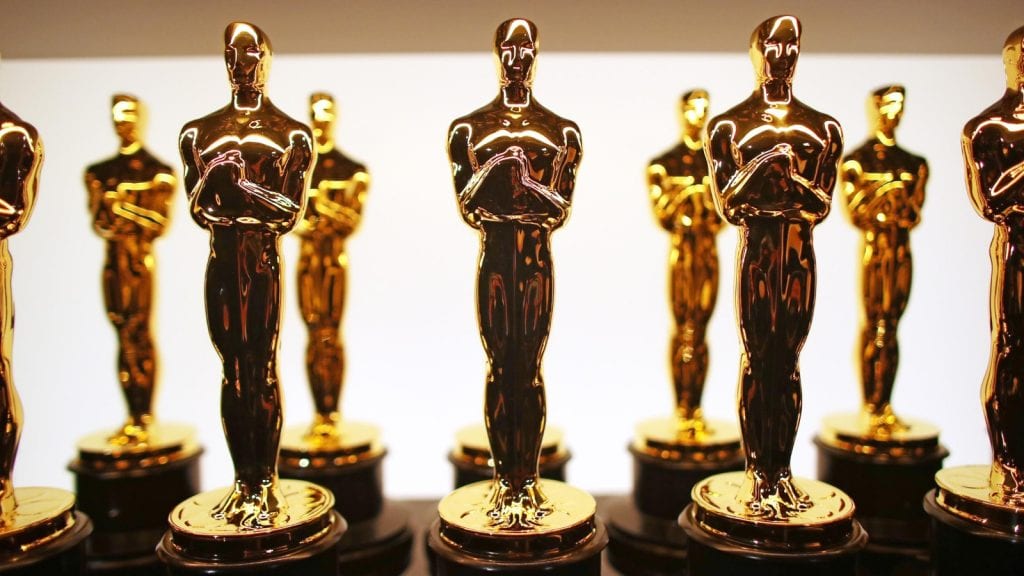 It is hard to tell when something actually becomes a tradition but what is harder still, is to figure out why.
It is hard to tell when something actually becomes a tradition but what is harder still, is to figure out why.
When Oscar host Jimmy Kimmel shared that the first Academy Awards presentation was held in 1929, it surprised me. The fact that it only lasted 15 minutes perhaps even more. No broadcast. Held in a hotel. Fifteen statues were given out.
Fast forward to last night – the show marked the ninetieth time the Academy Awards was held. The show was broadcast around the world and ran over three-and-a-half hours. I’m not sure how many awards were given out, but I know I was one of the more than 24 million people tuning in and soaking it all up.
Certainly after 90 years, I don’t think there is any arguing that the Oscars have become a tradition. But why does it still hold our attention after 90 years and what can we as communicators learn from it?
In my opinion it is a combination of three simple principles, all of which relate to why we go to the movies in the first place.
1. We love a good story and revel in the unpredictability. There is connection in watching as the winners are read, seeing their reactions in real time and then hearing their remarks as they channel all that emotion forward, cautious not to leave anyone off their list of thank-yous. It’s magic.
2. The power of currency. From jokes to political statements, we want to see and be told what matters, or at the very least we want to see how what matters will be told. From hearing statements such as “the status quo doesn’t have to be the status quo anymore,” to “there is nothing to be scared of, it’s just equality,” there was no doubt of the issues on everyone’s mind.
3. An opportunity to be inspired. We look for heroes and heroines to give us hope and provide examples for success. The Academy Awards celebrate the contemporary, historical and imaginary heroes from the movies honored, and provide a platform for heroic acceptance speeches. Frances McDormand left us with two words: “inclusion rider.”
And just as the Oscars are about honoring and hearing from a variety of people, I asked a few of my Ketchum colleagues to offer their reflections on what stood out for them about this year’s awards show and how it relates to what we do:
Jeff Lewonczyk, creative strategist – “Fantasy made a comeback. Genre films have traditionally fared poorly as Best Picture nominees – the Academy prefers a more orthodox reflection of what it believes to be “real life.” But with The Shape of Water – a romantic fairy tale starring a Creature from the Black Lagoon as the test subject of sci-fi government experiments – this year’s voters took a wilder imaginative leap that finally acknowledges the appetite audiences have for such fare. Not that Guillermo del Toro’s film can be taken as pure escapism – it is very much concerned with politics and power, in ways that reflect the ongoing injustices around us. But between the crowning of these laurels and the mega-success of films like Black Panther, the last vestiges of mainstream reluctance to celebrate such stories as art will begin to fall away, paving a path for increased freedom in storytelling for Hollywood, brands and beyond.”
Denise Kaufmann, partner and director of client development North America – “While I was living in London I was not able to watch the Academy Awards ceremony in real time and I really missed the spectacle and the glamour. After an eight-year year hiatus, what struck me as I watched this year’s awards was just how much the ceremony itself has changed. Political viewpoints have always been a part of the ceremony, but in years’ past, they were the exception not the rule. Last night, diverse points of view which would never have been uttered eight years ago, have become the rule. Audiences have the expectation of complete transparency and that trend will very much impact how brands and corporations tell their stories.”
Michelle Carney, vice president Branded Entertainment and Film – “One of the big surprises, that many people may not have noticed, was Icarus winning best documentary. It’s another sign that Netflix has really revolutionized the business around non-fiction filmmaking. They mounted a HUGE awards campaign for the film, something documentaries rarely have had access to and I certainly heard a bit of tut-tutting about that from documentary filmmakers. But it’s also a sign of how the entertainment industry, and audiences, have really embraced what used to be a niche film category.”
Mike Doyle, partner and regional president North America – “I suspect I take the Oscars way too seriously, but it’s because I’m as much a history buff as I am a movie lover. I love studying past nominees and winners as if they’re time capsules – the creative outputs that reflect the realities of the times and context in which they’re celebrated. This year was no different. Get Out, Three Billboards and Mudbound invite us to wrestle with the present-day realities of racism from very different perspectives. “The Shape of Water” and Darkest Hour remind us to muster the courage to persevere in the face injustice or persecution. And the way I see it, I, Tonya and Call Me By Your Name might be wildly different films, but they depict the universal desire to be yourself and yet still fit in.”
I’ve no doubt that you will come across many different perspectives on last night’s show. I’m interested in all of them and most especially yours, particularly if you tell it as a good story with emotional resonance.



